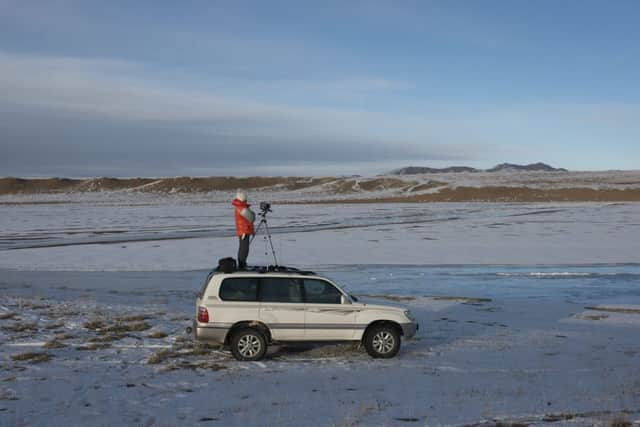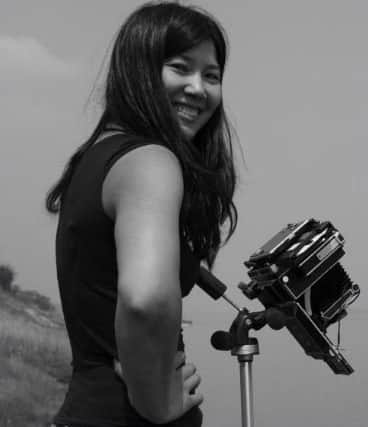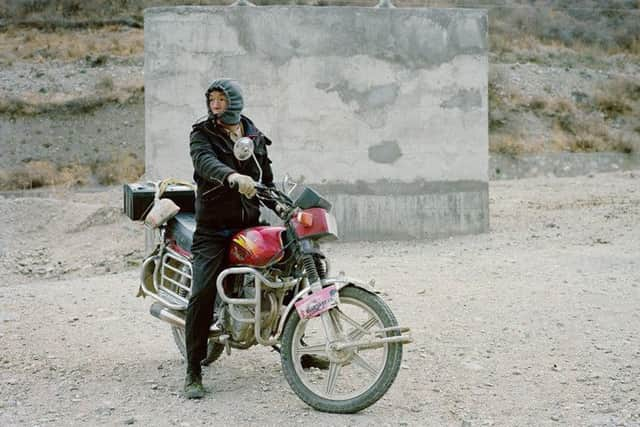How Yorkshire’s Yan Wang Preston left medicine behind to become world-renowned photographer


When Yan Wang Preston decided to leave the medical profession behind to pursue her dream of becoming a professional photographer, the family of doctors she came from were both surprised and sceptical.
But after moving to the UK with her English husband Neil in 2005 to start a new life after three years of working as an anaesthetist in her home country of China, she decided it was time to change things professionally as well as personally. Less than 15 years later, the gamble has paid off in extraordinary fashion – her acclaimed work has been exhibited around the globe and she has recently been named among the Royal Photographic Society’s ‘Hundred Heroines’, as well as winning first place in the landscape category of the Sony World Photography Awards – a competition that received more than 325,000 entries from 195 countries.
Advertisement
Hide AdAdvertisement
Hide Ad“Some pictures have the ability to take your breath away, that is how I felt from a very young age,” says Dr Preston, who lives in Hebden Bridge and has been a lecturer at Huddersfield University since last year.


“Photography started as a hobby when I was at university and it was a hobby for a number of years. When I moved to England with Neil, there was a big question of ‘What do I do?’ Photography was a wild dream – all my family members are doctors and I almost didn’t know anyone who wasn’t a doctor. But moving here was the beginning of a new life.”
She says her family took time to adjust to her change in career direction but now understand it.
“My family are very successful people and Chinese people push their children very hard,” she explains. “I think a few years ago they were probably secretly a bit disappointed. I don’t think they are now. They have learnt to accept this is what I choose to do.
Advertisement
Hide AdAdvertisement
Hide Ad“I made a decision and you only live your life once. It is not a life where you are rich financially but it is very rich.”


Preston had studied Clinical Medicine in Shanghai but after meeting Neil, who hails from Manchester, while enjoying their shared passion of rock-climbing, her life took a very different turn.
She began a part-time MA in Photography at Bradford College in 2006 and in 2010, the pair settled in Hebden Bridge. She initially built up her experience and reputation by working in commercial photography and producing images for postcards but says she realised while she could make a living from such work, she wanted to create more meaningful and artistically-fulfilling work.
“I had no idea how to go about it at the time but one thing led to another,” she says. “I found the most important thing was to start telling people I was a photographer and I charged a professional rate for my work.
Advertisement
Hide AdAdvertisement
Hide Ad“It did take a long time to build it but because I started from nothing, every step felt like I was becoming a photographer. I got my MA and decided I was not interested in commercial photography.
“It was the beginning of a journey I didn’t fully understand at the time.”
In 2010, she began an extraordinarily ambitious project as part of a PhD course she was undertaking at Plymouth University – an epic journey to along the entirety of the 6,211km-long River Yangtze in China, taking pictures every 100km.
It was a major logistical challenge, involving following the course of the river in 4x4 vehicles to make the 63 stops necessary to complete the task she had set herself.
Advertisement
Hide AdAdvertisement
Hide AdThe project, which came to be known as Mother River, took four years to complete as she documented a river which has an iconic place in Chinese culture due to its economic and historical importance in a way that had never been done before. As the British Journal of Photography put it, Mother River “is both a physical odyssey through China and a metaphor for its evolution, travelling from the traditional culture still seen to be seen at its source through to the rampant modernisation approaching its mouth”.
“It is a lot more than just a river,” Preston reflects. “But it was only represented by images from a couple of locations. The project was my challenge to the perception of how the river is seen.
“I had a rough idea how difficult it would be. But now looking back, I feel like I went crazy! But it was received very well and has been shown in large-scale national exhibitions, it has won awards and been published in a book.”
The hard work proved worth it. Mother River was described by one critic as the ‘work of a genius’ and the stunning images she captured have been exhibited at major venues around the world, including the Venice Biennale.
Advertisement
Hide AdAdvertisement
Hide AdAt the same time as Mother River, she also conducted a parallel – and similarly acclaimed – photography project in China called Forest, which examined the politics of tree-planting in Chinese cities. Transplanted mature trees are often planted in new cities which want to be green but planners do not want to wait for new trees to grow.
That work took seven years to complete and it was her images for an “otherworldly” ecology recovery landscape featuring non-indigenous plants and trees in semi-artificial soil on the outskirts of an urban development in Haidong Development Zone in Dali, Yunnan Province that secured her the Sony World Photography Award earlier this year.
“When I start off with a project I like to pick things that I find challenging. Normally I start off with a question and try to answer it.”
In addition to numerous exhibitions, Dr Preston’s work has been collected by institutions, such as Wuhan Art Museum in China, Syngenta, Swatch, as well as private collectors worldwide.
Advertisement
Hide AdAdvertisement
Hide AdAfter her completing her PhD last year and beginning part-time lecturing at the University of Huddersfield, Preston is also in the embryonic stages of her next major project which is due to feature images taken in her adopted home of Yorkshire, where she lives with her husband and daughter.
“Part of the next project will definitely be based in Yorkshire and it is partly in China,” she says.
Preston has got to know the local landscape through her passions of rock climbing and mountain biking which have taken her out into the Yorkshire Dales and the Peak District.
“Yorkshire is wonderful, I like the landscape, it is a beautiful place. The landscape itself is very complicated.”
Advertisement
Hide AdAdvertisement
Hide AdBut she adds it is not likely to be completed for another four years.
“I work slowly, these things are not done overnight.”
She says one of the most important keys to her working process is being in the field and having what she terms a “human relationship” with the landscape she is trying to capture the essence of by noticing and understanding the sights, sounds and smells around her.
As she puts it: “It is difficult to describe with words but that is why you take pictures.”
‘Antique way of working’
Huddersfield University says students have been fascinated by Dr Preston’s working methods, which include the use of a large format, single-shot plate camera on her ambitious location shoots.
“It’s almost an antique way of working,” she says.
Advertisement
Hide AdAdvertisement
Hide Ad“But I prefer to adopt a reflective approach and a large format camera goes with this. It forces me to think quite a lot.”
She adds that she is also open to the use of digital photo-editing software. “So perhaps I get the best of both worlds!”
Dr Preston says she is enjoying teaching. “I feel I can help my students develop.”
For more information about her work, visit www.yanwangpreston.com.